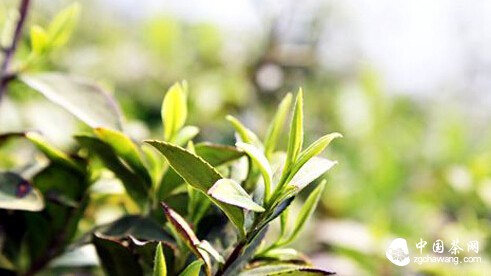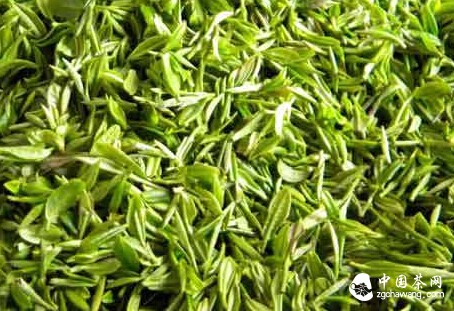
According to research, this is due to the effect of "theanine," a component related to the refreshing taste of tea.
"Theanine" is an amino acid found in tea and some mushrooms, accounting for only 1%-2% of the dry weight of tea leaves, and is the most abundant amino acid in tea. Common teas such as green tea, oolong tea, and black tea, all made from tea leaves, contain theanine.
Who would have thought that "theanine" can also activate inhibitory nerves in the brain, calm excitatory nerves, and thereby improve sleep quality, promoting deep sleep.
An experiment conducted on healthy young men showed that taking 200mg of theanine one hour before bedtime improved sleep quality: nighttime awakenings decreased, and sleep became deeper. Moreover, improved sleep efficiency allows for more effective fatigue recovery during sleep, making individuals feel more refreshed upon waking.
Additionally, it has been confirmed that many middle-aged and elderly women who struggle with insomnia experienced improved sleep quality after consuming "theanine."
Here’s how they did it: one hour before bedtime each night, they took 200mg of theanine. This artificially increased parasympathetic nerve activity during the first half of sleep while suppressing sympathetic nerve activity throughout the entire sleep period. This objectively reflects improved sleep quality. Furthermore, these women felt less fatigued upon waking, suggesting that "theanine" may enhance sleep quality in middle-aged and elderly women.
Is theanine like medicine? Yes and no.
Yes, because both theanine and medicine can improve sleep by enhancing the effects of GABA (gamma-aminobutyric acid) in the brain. No, because theanine does not cause drowsiness even when consumed during the day.
Studies to date show that consuming theanine during the day has different effects than at night: it does not cause next-day drowsiness or daytime sleepiness; instead, it sharpens the mind and boosts alertness.
This means that consuming theanine at different times can adjust the balance between wakefulness and sleepiness to an optimal level: theanine acts as a sleep aid at night and a清醒剂 during the day.
It can be assumed that even daytime consumption of theanine is unlikely to increase risks such as reduced work efficiency, errors, or workplace accidents.

Other effects of theanine:
Blood pressure lowering effect
It is generally believed that blood pressure regulation is influenced by the secretion of catecholamine and 5-hydroxytryptamine, neurotransmitters in the central and peripheral nervous systems. Research has shown that theanine effectively reduces spontaneous hypertension in rats. Kimura et al. suggest that this blood pressure-lowering effect may be due to theanine's regulation of 5-hydroxytryptamine secretion in the brain.
The calming effect demonstrated by theanine can also be seen as contributing to the recovery of mental and physical fatigue.
Impact on memory
Chu et al. reported that in an Operant test (an animal learning experiment where food is provided upon pressing a light switch), rats orally administered 180mg of theanine daily showed improved learning ability compared to the control group. Additionally, in an Avoidance test (an animal memory experiment where animals receive an electric shock when moving from a light room to a dark room with food), it was confirmed that theanine enhanced memory in rats. Many studies suggest that this improvement in learning and memory is due to the activation of central neurotransmitters.

Relaxing body and mind
As early as 1975, Kimura et al. reported that theanine can mitigate overstimulation of the central nervous system caused by caffeine. Although tea contains less caffeine than coffee and cocoa, the presence of theanine provides a unique sense of relaxation and well-being that coffee and cocoa lack.
It is well known that four types of brain waves—alpha, beta, sigma, and theta—are closely related to human mental states. In a study observing the effects of theanine on the brain waves of 15 young women aged 18–22, Chu et al. found that alpha waves significantly increased 40 minutes after oral intake of theanine. However, under the same conditions, they did not observe any effect of theanine on theta waves, which are dominant during sleep. From these results, they concluded that the relaxing effect of theanine does not induce sleepiness but rather enhances attention.
Protecting nerve cells.
Theanine can inhibit nerve cell death caused by transient cerebral ischemia, thus protecting nerve cells. Nerve cell death is closely linked to the excitatory neurotransmitter glutamate. Excessive glutamate can lead to cell death, which is often the cause of conditions like Alzheimer's disease. Theanine has a structure similar to glutamate and competes for binding sites, thereby inhibiting nerve cell death. Theanine may potentially be used in the treatment and prevention of brain disorders caused by glutamate, such as cerebral infarction, cerebral hemorrhage, ischemia during brain surgery or injury, and Alzheimer's disease.